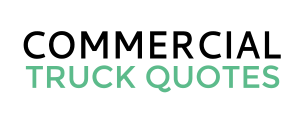
In my last post, I discussed the benefits of dedicating your professional focus to the niche of writing trucking business.
As we discussed, the world of transportation insurance is very very nuanced. There are a ton of moving parts!
Like gears in a machine, magic happens when those parts line up perfectly. But, if just one part is broken, missing or slow, the machine totally breaks down.
So, then, let’s turn our attention to those parts and how they interact with one another to help you build your transportation production machine!
Who is your ideal client?
The first part of this so called machine is centered around your ideal potential client. Who are they? Where do they live and work? How will you prospect for new clients and how will you market to them once you get them in your sales pipeline?
First things first: Who is your ideal potential client? My suggestion here is that you focus on which part of the transportation business you might want to focus on. Some common areas of focus include motor carriers, transportation intermediaries (freight brokers or freight forwarders) and warehousemen.
Motor carriers are trucking companies. These are the companies that are in business to transfer physical goods from one point to another typically using a semi-truck and trailer or some other type of vehicle. Trucking companies are as diverse and understanding your potential client’s operations is key to effectively writing a good trucking account.
In the past, the industry was even more heavily regulated than they are today. No two operations are the same! I repeat for extra emphasis: No two operations are the same! Don’t ever let yourself get sucked into the trap of thinking that just because one of your clients does something one way that they all will. Each motor carrier has different ways of doing things and there are over 425,000 different motor carriers in the US today.
A brief listing of some different ways that motor carriers can differ:
- Typical Radius of travel
- Commodities hauled or avoided
- Owning equipment versus leasing or renting equipment
- Having employee drivers versus having only owner-operators
I could (and may) spend an entire post just on this topic. But, I really just want to impress upon you that each account that you will be working with is different than all of the other ones. That’s part of what makes the class of business exciting and challenging at the same time!
Some trucking companies work directly with shippers (typically manufacturers or importers of products). Many don’t have the fleet size or capacity to handle the volumes that most shippers provide. Instead of dealing directly with the shippers, these motor carriers deal with “transportation intermediaries” who are also known as freight brokers and freight forwarders.
Freight Brokers, Freight Forwarders, and Warehouseman… oh my!
Freight brokers are hired by shippers to arrange for the carriage of their freight. The broker has a dual relationship in the transportation game as they are the key link between shippers and motor carriers. The broker is responsible for selecting a qualified motor carrier to move their client’s (the shipper) goods from one point to another. They never touch the actual freight that is hauled by the motor carrier.
Another common type of intermediary is named a “Freight Forwarder”. Unlike a freight broker, these entities actually can (and regularly do) take possession of the freight that is hauled. They are kind of like a hybrid between a freight broker and a motor carrier.
Warehousemen operate warehouses where products or goods can be stored for a period of time. The warehouses that they operate present a huge property and liability exposure on a number of levels and they are a specialized class of business onto themselves.
Pulling it all together
Trust me when I say, this is just the tip of the iceberg! I don’t want to scare you too badly, so let’s take a break here. Just understand that there are so many different types of transportation businesses out there.
Take a little while and think about who you are wanting to do business with….and don’t say anyone who will pay their bills!
Write out what your ideal client will look like. You want to write insurance for transportation businesses. Ok, now ask yourself which ones? Did your Mom or Dad drive a truck or own a warehouse? Do you just like big trucks (and you can not lie?)
Perhaps you worked in the automotive industry previously and are interested in writing insurance for auto haulers (I know some producers who solely focus on this market niche and have built multi-million dollar books of business around that niche.
If you take time up front to get super specific about the types of clients that you would like to do business with, then you are laying a nice cornerstone for building a successful book. The choice is almost entirely yours to make.
Build your business at the intersection of your passion and capability!

Sam Tucker, CPCU, CIC, CRM, TRS, ARM, AU, AMIM, API, AIS, AINS
CEO
Carrier Risk Solutions, Inc.
Sam Tucker is the founder and CEO of Carrier Risk Solutions, Inc., an Atlanta, Georgia based DOT compliance and fleet safety startup. Prior to this venture, Sam spent 13 years underwriting trucking and logistics accounts at some of the most well known insurance companies. He holds degrees in Business Economics and Finance/Risk Management as well as multiple professional insurance designations.
Carrier Risk Solutions regularly partners with transportation insurance producers to provide value added services for their clients. Our’ innovative safety management platform can be found online at www.CarrierRiskSolutions.com or www.MySafetyManager.com.
Reach Sam by email at STucker@CarrierRiskSolutions.com or by phone at 1-855-211-5550
